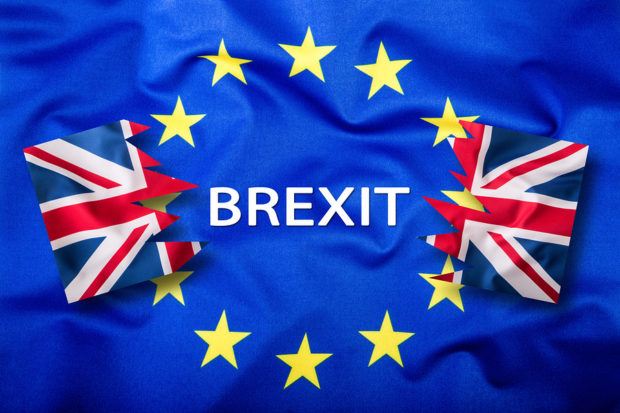The U.K. has revealed for the first time what kind of trade deal it wants businesses to have with the European Union after Brexit — and in British eyes, nothing will change.
Brexit Secretary David Davis said Britain will stay close to the EU’s regulatory regime after it leaves the bloc and only wants “the freedom” to go its own way if it chooses in future. It’s quite possible that the U.K. will decide to replicate European regulations on financial services and other areas indefinitely, he suggested.
Davis’s comments represent the clearest statement so far on what U.K. Prime Minister Theresa May’s government is planning to do after Brexit. EU negotiators in Brussels have been calling for such clarity from the U.K. for months. However, there are signs already that Britain’s willingness to accept EU rules will infuriate the euroskeptic hardliners in her Conservative Party.
“The aim in this whole exercise will be to maintain the maximum possible access to the European market whilst at the same time exercising our own freedom over what we are going to do in the future,” Davis said. “I see my task as creating that freedom — how far apart we diverge will be a matter for the government thereafter.”
End State
May’s Cabinet is currently finalizing its plan for the so-called “end state” of Brexit — what kind of future trade partnership Britain hopes for at the end of this long divorce process. Negotiations between the U.K. and the EU on this issue are due to begin in March, with both sides hoping to have at least an outline deal by October.
Politically, the prime minister is walking a fine line at home. She needs to keep Brexit campaigners like her outspoken Foreign Secretary Boris Johnson — who favors a quick, clean break — onside. Pro-Europeans like Chancellor of the Exchequer Philip Hammond and Home Secretary Amber Rudd are arguing for a softer departure, and they seem to be winning.
May must also find a way to avoid a new “hard border” between the U.K. and Ireland. Keeping the same trade rules as the EU would be one way to minimize frontier checks.
May is reported to be planning a speech — potentially next month — in which she’ll spell out her goals for the negotiation. But Davis decided to set out the headlines early.
Before Brexit negotiators start work on the final trade deal, officials on both sides will hash out the terms of a transitional phase potentially lasting up to two years. Davis told the committee that he wanted the transition period — also called an “implementation” phase — to help businesses cope, by keeping trading terms in line with single market membership.
Red Line
Davis also confirmed that the European Court of Justice will hold sway over the U.K. in the transition, which the EU expects to last until the end of 2020. Escaping the writ of the ECJ is a Brexit “red line” for May.
While officials have been holding talks behind the scenes, Davis said he had not yet decided when he will next sit down opposite his EU counterpart, Michel Barnier, for formal negotiations, though it could be as soon as next week.
The indications are that the U.K. wants to wrap up talks on the transition so it can quickly move on to negotiating future trade terms. Davis said an agreement could be fixed on transition before the end of March.
Read more about what else Davis said in a long grilling by lawmakers
“I am relaxed about transition because my primary concern is about the future relationship,” he said.
Despite Davis’s stance, fellow Conservative Brexit supporter Jacob Rees-Mogg expressed alarm at the transition plans. He told Davis during the committee hearing that forcing the U.K. to accept the rule of the ECJ and abide by the regulations of the single market during the transition period would make Britain “a vassal state.”
Davis rejected Rees-Mogg’s argument and dismissed his call to set out “red lines” for the forthcoming negotiations. In what might be a sign of renewed flexibility from the U.K., Davis said “any idiot” who begins negotiating with a set of “red lines” will ensure they only ever achieve the least favorable deal.





















 Viewpoint: Runoff Specialists Have Evolved Into Key Strategic Partners for Insurers
Viewpoint: Runoff Specialists Have Evolved Into Key Strategic Partners for Insurers  Why Claims AI Build vs. Buy Decisions So Often Miss the Mark
Why Claims AI Build vs. Buy Decisions So Often Miss the Mark  Teens’ First Year on the Road Most Deadly
Teens’ First Year on the Road Most Deadly  New Texas Law Requires Insurers Provide Reason for Declining or Canceling Policies
New Texas Law Requires Insurers Provide Reason for Declining or Canceling Policies 

